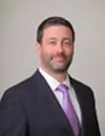There were several developments in the digital capital markets and payments space this week, spanning a variety of topics. First up, Blockstacks announced that its Stacks (STX) token can now be traded on the Binance and HashKey Pro exchanges (U.S. investors may not buy, sell or trade the tokens). The company raised most of its money from a Reg A+ offering in July, the first of its kind involving ERC20 tokens.
The U.S. Department of the Treasury's Office of Financial Innovation and Transformation announced this week two projects to improve financial management and the government's interaction with its customers, including a blockchain project that will aim to provide proof of concept of payments in a simulated letter of credit context. In another announcement, a major U.S. financial institution signaled this week that its cryptocurrency custody and trading service platform is in final testing. The company is waiting for final approval from the New York State Department of Financial Services before it fully launches.
Circle announced this week that it is spinning off the Poloniex cryptocurrency exchange into a new company called Polo Digital Assets Ltd. Circle acquired Poloniex just 18 months ago but said it has had issues as a U.S. company trying to run an international cryptocurrency exchange. As a result of the spinoff, U.S. customers will no longer be able to trade on the exchange.
Computer chip manufacturer Bitmain said this week it has launched a 50MW bitcoin mining farm in Texas. The farm, Bitmain's third in the U.S., has the capacity to grow to 300MW, which would make it the world's largest mining facility. Finally, ATM manufacturer Bitsmap recently installed crypto ATMs at the Miami International Airport. Travelers are required to declare when they carry over $10,000 in cash or equivalent fiat currency, gold or other assets. This begs the question for some: Is a traveler required to make a declaration if she carries a crypto cold wallet holding more than the equivalent of $10,000? Congress has considered several bills recently that would address this directly. For now, it is an open question.
For more information, please refer to the following links:
- Fiscal Service Announces Launch of Two Innovative Projects
- Fidelity Digital Assets Opens to All Qualified Investors
- Bitmain fulfills commitment to Rockdale, Texas, with launch of cryptocurrency mining farm to construct 50MW facility
- Bitcoin ATM in Miami Airport Raises Questions About Traveling With Crypto
- Blockstack's STX Token Now Traded on Binance and HashKey Pro
- Binance, Hashkey Pro to List SEC-Sanctioned Blockstack Token
- Poloniex to Spin Out of Circle
The content of this article is intended to provide a general guide to the subject matter. Specialist advice should be sought about your specific circumstances.

